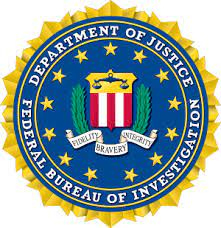NEW DELHI: Gupta was ‘trapped’ by two individuals, who were working undercover for the Federal Bureau of Investigation.
The entrapment of Indian national Nikhil Gupta by undercover employees of the Federal Bureau of Investigation and his subsequent extradition from Czech Republic to New York will come up for scrutiny when the hearing in the case starts next month.
As per the indictment released by the US Department of Justice against Gupta in November last year, Gupta was “trapped” by two individuals
The 52-year-old Gupta has been accused of being involved in a larger plot to assassinate Khalistani terrorist, Gurpatwant Singh Pannun, who has been proscribed under UAPA in India. He is currently a dual citizen of Canada and the United States.
The successful conviction of Gupta will largely depend on the testimony of these two undercover operatives, who were involved in the case, and who, as per FBI, are proof of Gupta being involved in an actionable plot to assassinate Pannun for India’s national interest.
However, an audit report of the Federal Bureau of Investigation’s National Security UnderCover Operations (UCO), done by Department of Justice and released in December 2022, just five months before the operation to trap Gupta was executed by the FBI, had found several deficiencies in how the FBI conducts and oversees these undercover operations.
The report flagged serious concerns about the FBI’s management of UCOs which the agency finds essential for counterterrorism, counterintelligence, and cybercrime investigations.
UCOs, that involve Undercover Employees (UCEs) or Online Covert Employees (OCEs), work under aliases to interact with targets while concealing their FBI affiliation, as happened in the case with Gupta.
As per the audit report, less than 46% of certified undercover employees were actively working, thereby putting extra burden on the existing agents. This excessive burden, as is the case with any investigation, pushes the investigators and agents to take shortcuts and not follow set guidelines so as to achieve the “target” which in the present case was Gupta.
More shockingly, the audit found that the FBI did not track all the activities done by its undercover activities, increasing the risk of compromising agents’ safety and the integrity of ongoing investigations. The integrity of the operations done by these UCEs is essential to be maintained to prove a successful conviction against the entrapped individual.
The 45-page report further revealed that the “Safeguard Unit” responsible for the safety and well-being of UCO personnel, took on additional responsibilities without a corresponding increase in staffing, affecting its efficiency and effectiveness.
What has raised more concerns and questions about the entire system of such UCOs is the finding of the report that stated that “Undercover coordinators” (UCC), who assist UCO personnel in the field, lacked the recommended qualifications, thereby impacting their ability to provide effective support.
The report has asked the FBI to establish reasonable and attainable qualifications for UCCs to ensure they have appropriate undercover experience, grade level, and adequate time to effectively conduct their undercover-related duties, suggesting the absence of these requirements with the FBI’s undercover program.
Similarly, the employees associated with these kinds of operations received no training beyond the one-time training that they were given when they were inducted into this wing of the FBI. According to the report, the prospective undercover employees undergo a one-time selection and certification process, but beyond that they receive no mandatory advanced or refresher training, which has led to inconsistent skills and knowledge among covert employees.
The report was authored by DOJ Inspector General Michael E. Horowitz and his team. It scrutinizes the FBI’s procedures and management practices related to UCOs, providing a detailed assessment of current shortcomings and potential risks. Horowitz made ten recommendations to address these issues, aiming to enhance the operational security and management of FBI’s undercover operations. The recommendations include improving organizational oversight, ensuring consistent training, better tracking of undercover activities, and enhancing the qualifications of undercover coordinators.
The FBI, as per the audit, did not challenge any of these shortcomings and agreed to implement all 10 recommendations to address these concerns and improve the effectiveness of its UCO program.
This shows that the FBI undercover operations has been working without proper training and amidst numerous shortcomings that will raise questions on how “clean” and “genuine” its operations were, including but not limited to Nikhil Gupta.
Sources said that significant shortcomings regarding FBI’s use of tradecraft including the lack of training provided to employees working in counterintelligence operations as well as the issue of inadequate oversight among others was also flagged by the officials. Moreover, questions have also been raised on the quality of the current training programs and the lack of the development of a comprehensive training framework to address these deficiencies.
Officials, responsible for reviewing the work done by the agency, have specifically asked the FBI to implement procedures to ensure it adequately tracks its covert and undercover activities and ensures the operational security of those activities. This suggests that there is a chance, or instance, of its undercover agents going rogue or not following the laid down protocols.
The officials found deficiencies in the FBI’s internal controls. Specifically, it found issues with General’s Exemption and Otherwise Illegal Activity requests, as well as, tracking the use of surveillance equipment and techniques in undercover activity.

